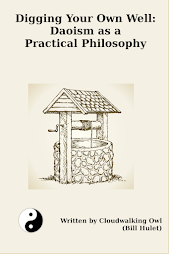
I recently got a good translation of Journey to the West and while primarily an entertaining work, I have also been trying to learn what I can from it.
For those of you who have never heard of this work, it is a huge written collection of stories that grew out of an oral tradition about the travel by a Chinese Buddhist monk, Xuanzang, to India to collect Buddhist scriptures from the huge monastic universities that existed then.
 (He lived at about 600AD, which means that he got there before Muslim invaders destroyed Buddhism in Afghanistan and much of Northern India.)
(He lived at about 600AD, which means that he got there before Muslim invaders destroyed Buddhism in Afghanistan and much of Northern India.)The books centre on the exploits of his four magical guardians: Monkey, Pigsy, Sandy and the dragon/horse, as they protect the monk from many enemies out to thwart him. For anyone interested in the worldview of "folk Daoism" in old China, it is a wealth of details about the make-up of heaven. It also offers some ideas about how ordinary people live their lives. (For example, at one point a wood cutter talks about eating the leaves of the tree-of-heaven. This led me to research the subject and come across a posting that says these were indeed eaten during times of famine, although it appears to be slightly poisonous.)
One of the key parts of the "machinery" of the book is the way various magical creatures are able to make "transformations". The monkey king is the best at changing himself into different creatures and objects, but all the magical beings are also able to change to one degree or another. I've wondered for years about how these transformations relate to Daoism. The answer recently came to me as a result of reading the Taiping Jing (see my last post.)

The way to understand the transformations in Chinese folklore is to think about the way people transform themselves as they move from one part of their lives to another. That is to say, when we are children we act in a certain way. When we are lovers, parents, employees, bosses, etc---the way to flow effortlessly with life is by being able to transform ourselves in order to fit what is needed. Problems arise when we refuse to transform our behaviour at the same time that our life circumstances change. People who know when to bow to circumstances never end up being pushed off the stage.
Please note that this is not a prescription for conformity, as sometimes conforming with the "status quo" is not an appropriate behaviour at all. Sometimes the appropriate transformation is to become a rebel who doesn't kow-tow ("knock head"), but rather who "knocks heads together". But even then, the man who can easily transform himself from one behaviour to another will be the most effective type of rebel.






